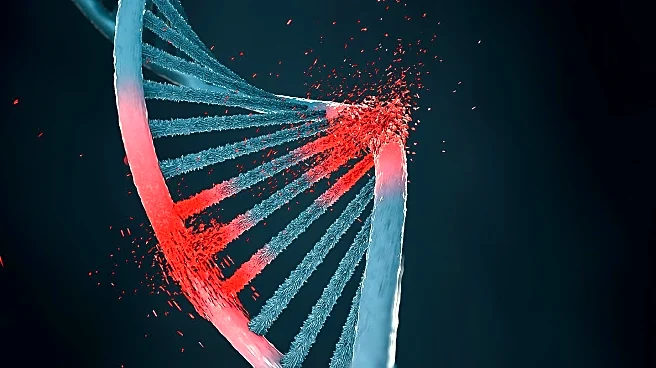What is the story about?
What's Happening?
A study published in PLOS Pathogens has found that the HIV Tat protein undermines cellular defenses, enabling tuberculosis (TB) infection. Researchers from the French National Centre for Scientific Research discovered that Tat hinders clathrin-mediated endocytosis and autophagy in macrophages, increasing susceptibility to TB. The study highlights the need for strategies to boost autophagy as a complement to current HIV treatments.
Why It's Important?
The findings provide insight into why individuals with well-controlled HIV remain vulnerable to TB, a leading cause of death among people living with HIV. Understanding the role of Tat in immune system sabotage could lead to new therapeutic approaches that enhance cellular defenses and reduce TB incidence. This research underscores the importance of addressing co-infections in HIV treatment.
What's Next?
Further research is needed to explore potential therapies that reactivate autophagy or prevent Tat from interfering with cellular defenses. Healthcare providers may consider incorporating these strategies into HIV treatment plans. Public health campaigns could emphasize the importance of addressing co-infections in HIV management.















